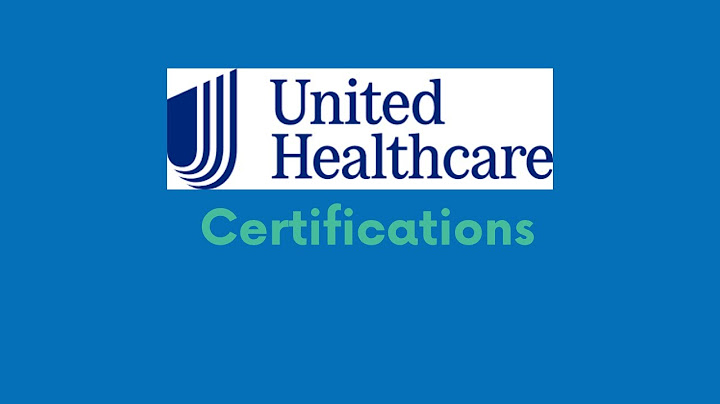What types of medical treatments and medications may need prior authorization?
No Surprises ActThe No Surprises Act was enacted in 2020 and goes into effect on January 1, 2022. It provides federal consumer protections against unanticipated out-of-network bills called “surprise bills.” Show
Surprise bills arise in emergencies when patients typically have little or no say in where they receive care. They also arise in non-emergencies when patients at in-network hospitals or facilities receive care from providers (such as anesthesiologists) who are not in-network and whom the patient did not choose. The law requires surprise bills must be covered without prior authorization and in-network cost sharing must apply.1 How do I get a prior authorization?If your health care provider is in-network, they will start the prior authorization process. If you don’t use a health care provider in your plan’s network, then you are responsible for obtaining the prior authorization. If you don’t obtain it, the treatment or medication might not be covered, or you may need to pay more out of pocket. Review your plan documents or call the number on your health plan ID card for more information about the treatments, services, and supplies that require prior authorization under your specific plan. How does the prior authorization process work?Typically, within 5-10 business days of receiving the prior authorization request, your insurance company will either:
These responses are based on input from clinical pharmacists and medical doctors who review the requests at the health insurance company. If you’re unhappy with your prior authorization response, you or your health care provider can ask for a review of the decision. Is prior authorization required in emergency situations?No, prior authorization is not required if you have an emergency and need medication. However, coverage for emergency medical costs are subject to the terms of your health plan. Why does my health insurance company need a prior authorization?The prior authorization process gives your health insurance company a chance to review how necessary a medical treatment or medication may be in treating your condition. For example, some brand-name medications are very costly. During their review, your health insurance company may decide a generic or another lower-cost alternative may work just as well in treating your medical condition. How does prior authorization help me?The prior authorization process can help you:
Review your plan documents or call the number on your plan ID card for more information about the treatments, services, and supplies that require prior authorization under your specific plan. Your United Healthcare weight loss surgery insurance coverage depends on several factors, all of which are reviewed below. First, use our free insurance check tool to quickly double check your plan: The following sections will explain all you need to know about United Healthcare weight loss surgery coverage: Click on any of the topics below to jump directly to that section SECTION SUMMARY: READ THIS FIRSTEven if your insurance company covers bariatric surgery in some plans, that does not mean that your specific plan covers it. The obesity surgery approval requirements in this section assume that weight loss surgery is covered by your specific policy. To confirm whether your specific policy covers bariatric surgery, click here to contact a surgeon and ask for a free insurance check. Disclaimer: The information contained on this page may not include all components of your insurance company’s medical policy and/or may not be up to date. Contact your insurance company to confirm all benefits. In order to be approved by United Healthcare for bariatric surgery in the United States, you must meet the following criteria:
Or Use this BMI Calculator to check your body mass index: Weight Loss Surgery Criteria for Fully Insured Group Policies in Maryland ONLY
Additionally, as stated in the Code of Maryland Regulations: Coverage of surgical treatment of morbid obesity is limited to adults 18 years of age or older. Adolescents Requirements Some bariatric surgical procedures are proven in adolescents for the treatment of clinically severe obesity as defined by the criteria above and who have:
Definition: Tanner StageA stage of puberty in the Tanner growth chart, based on pubic hair growth, development of genitalia in boys, and breast development in girls (1). Revision Requirements Surgical revision or a second bariatric surgery could be deemed medically necessary for inadequate weight loss if the original criteria for bariatric surgery (BMI, comorbidities and patient selection criteria) continue to be met. If Your Policy Does NOT Cover It: Seek Partial CoverageYou may be able to get part of the costs paid for by insurance even if weight loss surgery isn’t covered. It’s all about how your doctor and hospital submit your claims to your insurance company. For example, there are many non-bariatric surgery reasons for your doctor to recommend:
These are ordered for many reasons other than bariatric surgery and may be covered as a result. If your doctor submits one of these claims using a weight loss surgery CPT code (Current Procedural Terminology Code), your insurance is unlikely to cover it. But if your doctor uses a general CPT code, it probably will be covered. While this may sound “sneaky”, it is an ethical practice. After all, these tests will be beneficial regardless of whether you move forward with surgery. Contact United Healthcare to Ask About Bariatric Surgery
SECTION SUMMARY:
Before getting into the types of insurance plans, you can cut to the chase by contacting a local bariatric surgeon’s office. Most surgeons will contact your insurance company for free to confirm whether or not you’re covered. Click here to find a local surgeon and ask them to check your insurance for you for free. United Healthcare does cover weight loss surgery, but your specific policy must include it in order for you get it covered. Following are a list of United Healthcare plan types and whether they cover bariatric surgery: Weight Loss Surgery for Health Plans Through Your WorkIf you work for a company that has 50 or more full time employees, it is completely up to your employer to decide whether or not to cover bariatric surgery under your health plan. To find out whether weight loss surgery is covered by your employer’s plan, you have a few options:
Weight Loss Surgery for Individual/Family PlansThe Affordable Care Act (Obamacare) requires all individual and small group plans (less than 50 full time employees) to include weight loss surgery coverage as long as it is considered an “Essential Health Benefit” in your state. The following states DO currently consider bariatric surgery an Essential Health Benefit (bariatric surgery is covered by all individual, family and small group plans in these states): Your State Not on the List?If your state is NOT on the list, then weight loss surgery is probably NOT covered under your plan. First, contact your local surgeon to be sure. For no charge, their office will contact your insurance company on your behalf to work through the details. If your surgeon confirms that your policy does not include obesity surgery, you still have several options for making surgery more affordable. See these pages for more information:
Regardless of whether your state is on the list, contact a qualified surgeon to request a free insurance check to verify your coverage. To review your insurance company’s obesity surgery coverage requirements, click here to jump back up the page. Weight Loss Surgery for Medicare PlansAll Medicare plans are required to cover the following weight loss surgery procedures:
However, special Medicare-specific criteria apply. Click here to learn more about Medicare bariatric surgery coverage. 03. Covered Weight Loss ProceduresSECTION SUMMARY:
Please see below for the procedures United Healthcare covers, might cover under certain circumstances, and those that are not covered under any circumstances: Procedures That ARE CoveredFor Adults
For Adolescents
Procedures That Are NOT CoveredThe following procedures are NOT covered by United Healthcare:
SECTION SUMMARY:
If United Healthcare denies your weight loss surgery claim and you think it should be covered, consider filing an appeal. Our Health Insurance Appeals page will get you started, then head over to the Disputes & Appeals page for United Healthcare to learn how to proceed. 05. Find a Weight Loss SurgeonSECTION SUMMARY:
Search the weight loss surgeon directory below to ask a surgeon about a free insurance check by country and region:
* Disclaimers: Content: The information contained in this website is provided for general information purposes and your specific results may vary depending on a variety of circumstances. It is not intended as nor should be relied upon as medical advice. Rather, it is designed to support, not replace, the relationship that exists between a patient/site visitor and his/her existing physician(s). Before you use any of the information provided in the site, you should seek the advice of a qualified medical, dietary, fitness or other appropriate professional. Advertising: Bariatric Surgery Source, LLC has entered into referral and advertising arrangements with certain medical practices, original equipment manufacturers, and financial companies under which we receive compensation (in the form of flat fees per qualifying action) when you click on links to our partners and/or submit information. This site is protected by reCAPTCHA and the Google Privacy Policy and Terms of Service apply. Read More Request a Free Insurance CheckFill out the below form for a free insurance check performed in partnership with your local bariatric surgeon. Advertisement Los Angeles/Orange County How long does it take United Healthcare to approve bariatric surgery?So How Long Does Surgical Insurance Approval Take? Most patients can be pre-approved for bariatric surgery within a matter of 90 days/12 weeks (with consecutive office visits throughout) if there are no medical weight loss program requirements, but there is no guarantee.
Does United Healthcare do retro authorizations?Retroactive Authorization request: • Authorization will be issued when due to eligibility issues. after an appeal is filed. UHC often doesn't receive complete clinical information with an authorization to make a medical necessity determination.
Does Mississippi Medicaid cover weight loss surgery 2022?Medicaid enrolled health-care providers should be advised that Mississippi Medicaid does not currently cover bariatric surgery. Any change to the status of the State Plan Amendment (SPA) will be posted on the Mississippi Division of Medicaid website at medicaid.ms.gov.
Does United Healthcare cover weight loss surgery in Louisiana?Louisiana Medicaid covers bariatric surgery, consisting of open or laparoscopic procedures that revise the gastrointestinal anatomy to restrict the size of the stomach, reduce absorption of nutrients, or both. Coverage of bariatric surgery requires prior authorization.
|

Advertising
LATEST NEWS
Advertising
Populer
Advertising
About

Copyright © 2024 chuyencu Inc.












